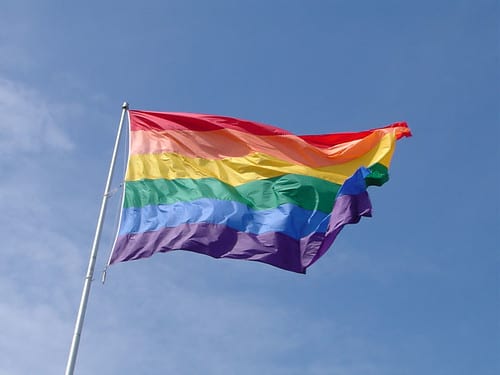I attended my first Pride Parade in 2004 when I was 18 years old and working for OutFront Minnesota, an LGBTQ political advocacy organization in Minneapolis.
We were still celebrating the 2002 election of Scott Dibble to the Minnesota State Senate, the only LGBTQ member of that body at the time. But we were also on defense, as national Republicans turned LGBTQ rights into a wedge issue hoping to save George Bush’s flailing campaign for a second term. Despite this political backdrop, I still remember the feeling of personal liberation that came from being surrounded, for the first time, by a community where my sexual orientation didn’t set me apart.
This year would have been the 50th anniversary of San Francisco Pride, but there will be no parade this year. Instead, this Pride month feels like a cruel nightmare of traumatic memories. We are watching as a disease ravages our friends and family, while a hostile president tweets conspiracy theories from his bunker and holds federal resources hostage to punish political enemies.
Education Secretary Betsy DeVos has escalated her attacks on our children by issuing a new round of threats to cut federal funding for Connecticut schools unless they exclude transgender student-athletes from school sports. And we are seeing the ugly face of police violence revealed once again with the deaths of George Floyd, Breonna Taylor and Tony McDade.
This month, I have heard the words of Marsha P. Johnson continually ringing in my head: “There is no Pride for some of us without liberation for all of us.” This moment is one that the LGBTQ community is all too familiar with, and one we cannot ignore. Our movement for LGBTQ rights was born from the righteous rage of trans women of color. It was born from their uprising against police invasions of our safe spaces and violence against our people.
So, we know something about police violence and we know something about racism, and we will not forget that black people were instrumental in building this movement. The violence still experienced by trans people of color today reminds us that this remains a shared struggle for justice.
This year, there will be no parades, but we know that Pride was never really about the parades anyway. Pride has always been about liberation. Liberating ourselves from social norms, beliefs and conditioning that exists to exclude us, and giving us the opportunity to build our own healthy identity, both as individuals and as a community. The rainbow flags, parade floats, gender bending outfits and all the other blindingly fabulous aspects of Pride were just the visible reflection of our internal liberation.
This year, our liberation means putting the safety of our community first, and it means standing with others who are experiencing institutional violence and oppression. This year we stand with the black people who are demanding justice for the police killings around the country. We may not be hitting the streets for Pride, but we’re still hitting the streets for black lives. We’re still hitting the streets for trans women of color. This is still about liberation from oppression.
And as President Obama reminds us, our liberation doesn’t just happen in the streets. We must engage in the political process too. 2020 has already given us the first viable LGBTQ candidate for president when Pete Buttigieg came from behind to win the Iowa caucuses. We saw historic legislative movement around the country in 2019 on non-discrimination laws and bans on conversion therapy. In 2018, more than 610 LGBTQ candidates ran for office across the country, and a record shattering 162 of them won. Clearly, even in the era of Trump, we can make real change when we show up.
To honor Pride this year, we must replace the parade with action.
As Harvey Milk once said, we must come out. We must come out as activists. We must come out for racial justice. We must come out for trans people of color. We must come out for all those who are oppressed. We must come out for protests. We must come out for an uprising. And we must come out on Nov. 3 to vote for the change we so desperately need, not just at the presidential level, but at the local level.
Fifty years of activists came out for us, so that we could live our lives in the bright light of day. Now it’s our turn to come out for each other, and finish their work. This year, Pride is still about liberation, for ourselves and all those who are oppressed. We’re just doing it a little different.
Michael Vargas is a business and securities lawyer and a part-time professor at Santa Clara University Law School. Vargas also chairs the American Bar Association’s committee on Business Law Education and serves on the executive board of the Santa Clara County Democratic Party, and on the boards of BAYMEC and the Rainbow Chamber of Commerce.



Leave a Reply
You must be logged in to post a comment.